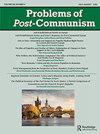COVID-19在中亚:卫生危机的(非)证券化?
IF 2
2区 社会学
Q2 POLITICAL SCIENCE
引用次数: 1
摘要
许多国家已将其应对COVID-19大流行的政策证券化,将其视为需要采取特别安全措施的生存威胁。证券化的政治手段对非民主政权尤其有利。然而,与人们的预期相反,中亚各国政府会采用他们久经考验的方法,将新的政策问题视为国家安全威胁,这些政府故意对疫情进行了限制,有些政府甚至淡化了COVID-19构成威胁的重要性。如何解释为应对大流行而出现的这些出人意料的证券化模式?本研究认为,专制政权对合法性的关注及其具体的合法化实践影响了他们对政策问题证券化的选择。在哈萨克斯坦,政府对危机的反应成为了一场政治斗争的一部分,各方都在争夺总统的合法性。在吉尔吉斯斯坦,由于经济表现不佳,加上对动乱的担忧,政府合法性薄弱,因此没有采取任何协调一致的措施将危机证券化。在乌兹别克斯坦,政府新的技术官僚自我形象限制了其COVID-19应对措施中的证券化。在塔吉克斯坦,由于COVID-19证券化承诺的额外安全援助很少,因此出现了拒绝和拖延战略。本文章由计算机程序翻译,如有差异,请以英文原文为准。
COVID-19 in Central Asia: (De-)Securitization of a Health Crisis?
ABSTRACT Many countries have securitized their policy responses to the COVID-19 pandemic by framing it as an existential threat demanding extraordinary security responses. The politics of securitization are particularly advantageous to nondemocratic regimes. Yet, contrary to the expectation that the Central Asian governments would resort to their tried-and-tested method of framing a new policy issue as a national security threat, these governments have used a deliberately constrained representation of the pandemic with some even diminishing the significance of a threat posed by COVID-19. What explains these unexpected patterns of securitization in response to the pandemic? This study argues that autocratic regimes’ concerns with legitimacy and their specific legitimization practices shape their choices about securitization of a policy issue. In Kazakhstan, the government’s response to the crisis became part of a political struggle between competing claims to presidential legitimacy. In Kyrgyzstan, weak government legitimacy rooted in poor economic performance coupled with the fear of unrest preempted any coherent effort to securitize the crisis. In Uzbekistan, the government’s new technocratic self-image limited securitization within its COVID-19 response. In Tajikistan, a strategy of denial and delay emerged, since securitization of COVID-19 promised little additional security aid.
求助全文
通过发布文献求助,成功后即可免费获取论文全文。
去求助
来源期刊

Problems of Post-Communism
POLITICAL SCIENCE-
CiteScore
4.00
自引率
12.50%
发文量
33
期刊介绍:
The post-communist countries are the most rapidly changing societies of Europe and Asia. For insight into this twenty-first century revolution, there is no better source than Problems of Post-Communism. Emphasis is placed on timely research covering current economic, political, security, and international developments and trends in Russia and China, Central Europe and Central Asia, Latin America, and Southeast Asia. Clarity and readability make the articles fully accessible to researchers, policy makers, and students alike.
 求助内容:
求助内容: 应助结果提醒方式:
应助结果提醒方式:


